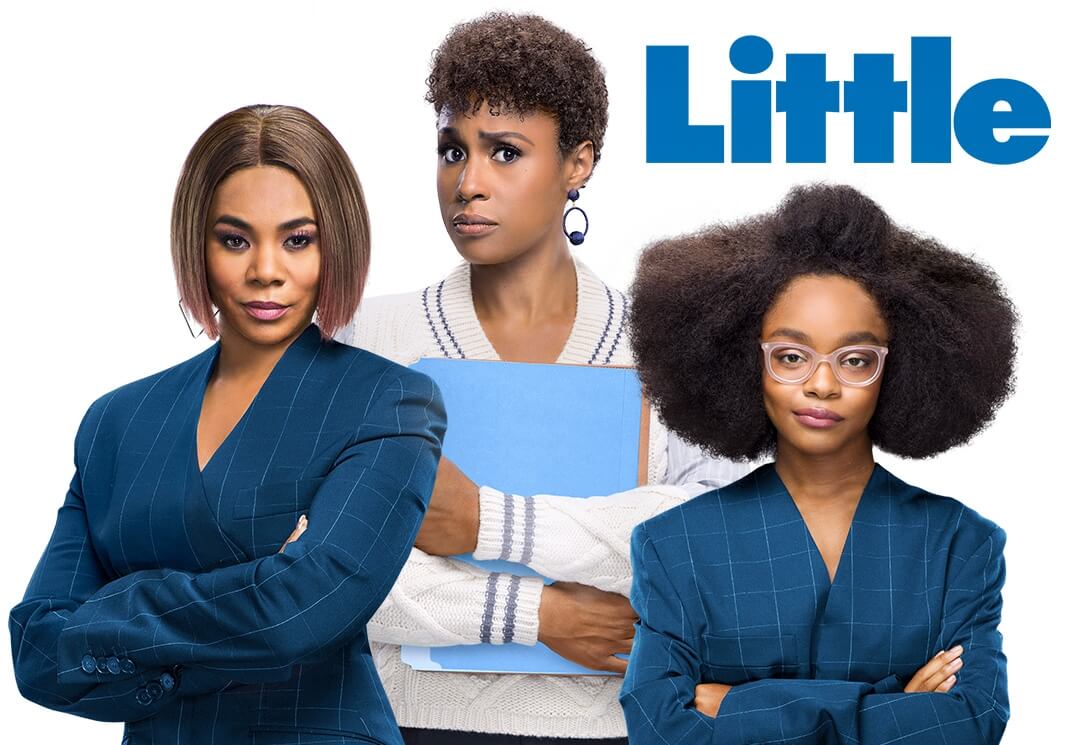Little Red Riding Hoe - A Closer Look At "Little"
Have you ever stopped to think about a simple word, a word we use every single day, and just how much it truly carries? It's almost like a tiny package with a whole bunch of different things tucked inside. We often throw it around without a second thought, but when you actually stop and consider it, the word "little" has a rather surprising amount of depth. This word, you know, it pops up in so many places, sometimes meaning one thing, sometimes something else entirely. It's a word that, frankly, can make us pause and consider the scale of things, whether that's size, time, or even an amount.
So, when we come across a phrase like "little red riding hoe," our minds might jump to a story, perhaps a well-known tale, but what if we just focused on that first word? What if we pulled apart "little" itself and really thought about what it brings to the table? It's a bit like looking at a single brick in a huge building; that brick, by itself, might seem plain, yet it holds up so much more. This article, you see, is all about that one word, "little," and how it shapes our thoughts, how it changes what we hear, and how it helps us make sense of the world around us.
We'll be exploring the many faces of "little," from how it describes something that isn't big to how it can talk about a short span of time or just a small amount of something. It's a word that, in some respects, is pretty powerful despite its own meaning. You might be surprised, actually, by just how many ways we use this word, and how it adds a particular shade of meaning to everything it touches, including, perhaps, even the idea of a "little red riding hoe."
Table of Contents
- What Does "Little" Really Mean for "little red riding hoe"?
- How We Use the Word "Little" in Everyday Talk
- The Many Shades of "Little" in "little red riding hoe"
- Comparisons and What They Tell Us About "Little"
- Is There a Small Amount of Time for "little red riding hoe"?
- When "Little" Becomes Something Else - A Look at Different Uses
- The Word "Little" and Its Role in Stories (like "little red riding hoe")
- How Do We Intensify the Idea of "Little" in "little red riding hoe"?
What Does "Little" Really Mean for "little red riding hoe"?
When you hear the word "little," what pops into your head? Most people, it's pretty clear, think of something that just isn't big. It's the opposite of large, the counterpoint to immense. But it's more than just a simple opposite, isn't it? "Little" brings with it a sense of scale, a way to measure things that are not grand or sweeping. It's about proportion, about how something stacks up against other things we know. So, when we talk about "little red riding hoe," the word "little" straight away sets a certain expectation about size or significance, doesn't it?
This idea of "not big" can apply to so many different things. A tiny house is "little." A small piece of cake is "little." Even a brief moment in time can be described as "little." It's a pretty versatile word, you know. It helps us put things into perspective, to see them in a manageable size. For instance, if you're thinking about a project, a "little" project feels much more approachable than a "big" one, doesn't it? That's the sort of feeling "little" brings along.
And then there's the nuance. "Not big" isn't always about physical dimensions. Sometimes, it's about importance or impact. A "little" problem might be something you can fix quickly, something that won't cause too much trouble. A "little" secret might be something harmless, something you share with just a few close people. So, in the phrase "little red riding hoe," that initial word, "little," really shapes our initial thoughts about the subject, suggesting a certain scale or maybe even a certain level of consequence.
How We Use the Word "Little" in Everyday Talk
We actually use "little" in sentences all the time, almost without thinking. It's a word that helps us describe the world around us in a way that feels natural and easy to grasp. Think about how often you hear it, or say it yourself. Someone might say, "Could I have just a little bit of sugar in my coffee?" Or, "That was a little tricky, but I figured it out." These are just simple, common ways we put the word to work, giving a sense of scale to what we're talking about.
Consider the phrase, "This is a little table." When you hear that, you instantly picture a table that's not huge, perhaps one that fits in a cozy corner or is meant for a child. It's a pretty clear image, isn't it? The word "little" here does a lot of work to paint that picture quickly. It's more than just saying "small table"; it carries a certain feeling, maybe of cuteness or practicality, depending on the context. That's the power of conversational language, you see, it adds layers.
Another common way we use it is to talk about distance or progress. Someone might say, "It's only a little way now," when you're almost at your destination. This usage tells you that the remaining distance isn't vast, that you're nearly there. It gives a sense of encouragement, a feeling of closeness. So, even in the context of "little red riding hoe," you can see how "little" could imply a journey that's not long, or perhaps a task that won't take much effort, or just a small step in a bigger story.
The Many Shades of "Little" in "little red riding hoe"
When we talk about "small in size or amount," the word "little" truly shines. It's not just about physical things, though it certainly applies there. You might have a "little" piece of pie, meaning a modest serving. Or a "little" dog, referring to a breed that isn't large. But it also extends to quantities that aren't easily seen or held. You could have a "little" bit of hope, or a "little" bit of patience. These are not things you can measure with a ruler, but "little" still helps us describe them.
Think about a "small amount of food or drink." This phrase immediately brings to mind a modest portion, something that won't fill you up completely but might satisfy a slight craving. It suggests moderation, or perhaps a taste rather than a full meal. "Just a little sip," someone might say, indicating they don't want much. This usage is pretty common, and it helps us manage expectations about how much of something we're getting or giving. So, in our phrase "little red riding hoe," the word "little" could hint at a modest scale or a limited quantity of something, couldn't it?
Then there's the idea of a present that isn't of great value in terms of money, but perhaps means a lot in other ways. "A present that is not of great..." is how the text puts it, leaving us to fill in the blank, perhaps with "value" or "cost." A "little" gift often carries immense sentimental weight. It's the thought, the gesture, that counts far more than the price tag. A small, thoughtful item can be far more precious than something expensive. This highlights how "little" can sometimes mean something more profound than just its physical dimensions, showing how something modest can still be very significant.
Comparisons and What They Tell Us About "Little"
The word "little" also has its own family of comparative forms, which is pretty interesting when you think about it. We have "less" or "lesser" when we're talking about amounts or importance, and "littler" when we're comparing sizes directly. Then there's the superlative, "least" or "littlest," which means the smallest of all. This range of words helps us make very specific comparisons, showing just how small something is in relation to other things. It's like having different tools for different jobs, all related to the idea of smallness.
For example, you might say, "This table is littler than that one," if you're comparing two tables directly by size. Or, "I have less time than I thought," indicating a smaller amount of time. The nuances between "less" and "littler" are subtle but important for clarity. "Less" tends to be about quantity or degree, while "littler" is almost always about physical size. This shows how our language provides different ways to express similar ideas, adding richness to our conversations.
And when we use "least," we're really saying something is at the very bottom of the scale in terms of size or amount. "That's the least of my worries," means it's the smallest problem I have. Or, "This is the littlest puppy in the litter," meaning it's the smallest one among its siblings. So, when we consider "little red riding hoe," the idea of "little" can be thought of on a spectrum, from just a bit small to the very smallest possible, depending on what we're trying to convey about it. It gives us, you know, a lot of flexibility.
Is There a Small Amount of Time for "little red riding hoe"?
Beyond size, "little" also helps us talk about things that are short in extent or duration. A "little while" means a brief period of time. A "little walk" might be a short stroll, not a long hike. This usage is pretty common and helps us manage our expectations about how long something will take or how far something extends. It's a way of making things feel more manageable, less intimidating, perhaps. You know, a small commitment.
Consider waiting for someone. You might hear, "They'll be here in a little bit." This tells you that the wait won't be long, that they're coming soon. It's a comforting phrase, often used to reassure. Similarly, if you're working on something, and someone asks about your progress, you might say, "I've made a little progress," meaning you've started, but there's still more to do. It conveys a sense of partial completion, a modest step forward.
So, for "little red riding hoe," the word "little" could suggest a short duration of an event, a brief journey, or perhaps a story that doesn't take long to tell. It sets a particular pace, a feeling of something concise and to the point. This aspect of "little" shows how it helps us structure our understanding of time and sequence, making big concepts feel more bite-sized, in a way.
When "Little" Becomes Something Else - A Look at Different Uses
It's quite fascinating, actually, how many different meanings the word "little" can hold. The dictionary, as a matter of fact, lists dozens of ways we use it, with some meanings even fading out of use over time. This really shows how language is always shifting, always changing, with words picking up new meanings or letting go of old ones. It's a pretty lively thing, language, always on the move.
The core definitions, though, tend to stick around. "Little describes something that is small in size," as we've talked about. This is the most basic, most common way we use it. But then there's "little also describes a short time," which expands its use beyond physical dimensions. And "little can refer to a small amount of something," covering quantities of things that might not even be countable, like feelings or abstract ideas. These basic definitions really form the backbone of how we understand the word.
And then there are the less common, or even older, uses that show just how much history a single word can carry. It's a bit like looking at an old building; you can see the layers of time in its structure. The word "little" is a synonym for small size, which is pretty straightforward, but its ability to convey so many other ideas is what truly makes it a rich and useful part of our everyday talk. So, in the context of "little red riding hoe," the "little" part could be hinting at any of these layers of meaning, making us wonder about its specific interpretation.
The Word "Little" and Its Role in Stories (like "little red riding hoe")
Sometimes, the idea of being "little" takes on a whole new dimension, especially in stories. Think about a situation where someone is transformed into a younger self. When a person becomes "little" again, perhaps physically smaller and less experienced, it changes everything about their perspective. They might see the world with fresh eyes, or suddenly face challenges that seemed simple when they were grown up. This concept, you know, explores what it means to be small again, not just in size, but in terms of power or influence.
This kind of transformation, where an adult is made "little" again, often brings out interesting themes about the pressures of being grown up versus the relative freedom of being young. An overbearing boss, for instance, suddenly finding themselves in a smaller, less powerful body, would certainly have their perspective shifted. They might have to learn to rely on others, or to see things from a completely different angle. It's a powerful way to explore empathy and change, isn't it?
So, when we consider "little red riding hoe," the word "little" could evoke this very idea of a diminished state, a return to a simpler, perhaps more vulnerable, form. It makes us think about how size, or a lack of it, can affect one's interactions with the world and with others. It's a pretty compelling idea, actually, how being "little" can force a character to adapt and rethink their approach to life's situations.
How Do We Intensify the Idea of "Little" in "little red riding hoe"?
It's interesting how we can make "little" even "littler" in our speech. We often use words like "so," "too," and "very" right in front of "little" to really emphasize just how small or how brief something is. For instance, if you say, "That's a very little piece," you're making it clear that the piece is truly tiny, not just small. It adds an extra punch to the word, doesn't it?
When someone says, "I have so little time," they're not just saying they don't have much time; they're expressing a feeling of urgency or scarcity. The "so" amplifies the "little," making the lack of time feel more significant. Similarly, "It's too little to make a difference" conveys that the amount is insufficient, not just small. These intensifiers help us express stronger feelings or more precise measurements when "little" by itself just isn't quite enough.
So, if we were to talk about a "very little red riding hoe," or a "so little red riding hoe," the meaning of "little" would become even more pronounced. It would push the idea of smallness or insignificance even further, making the phrase carry a stronger sense of diminished scale. This shows how flexible our language is, allowing us to fine-tune the intensity of our words and convey exactly what we mean, even with a word as seemingly simple as "little."
This exploration has really pulled apart the word "little," showing how it describes

Little | Universal Pictures

Little: Official Clip - Middle School Makeover - Trailers & Videos

Little | Universal Pictures